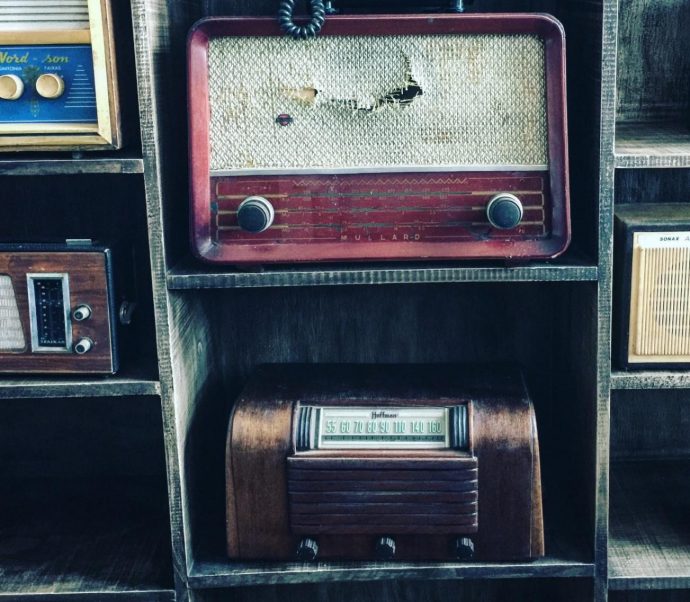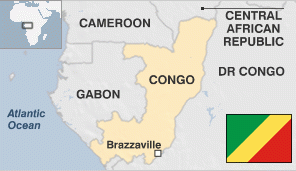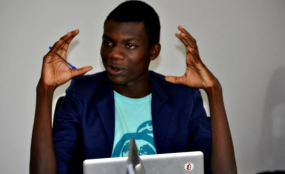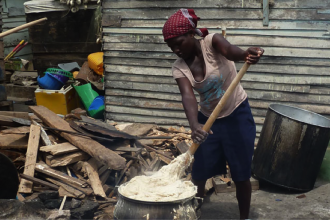Under the auspices of UNESCO Africa joined the rest of the world in celebrating the 6th edition of the World Radio Day on February 13th. This year’s theme “Radio for You!” emphasizes on greater participation of audiences and communities in the policy and planning of radio broadcasting. In commemoration of this day it is imperative to skim through the radio sector while highlighting its significance to the mother continent of Africa in general and the African youths in particular.
Budding from a very humble background with only ten independent radios in all of Sub-Saharan Africa by 1988, the radio sector has since then witnessed a dramatic expansion due to the lack/frequent shortage of electricity; low literacy rates; the high unit costs of television; the widespread of cheap transistors; the need for alternatives to government-controlled media and the most lately the inaccessibility to Internet services. These limitations within the media sector simultaneously attracted new investments from the civil society, international organizations, the private sector and NGO’s which sort to exploit this highly accessible medium in effecting social, political and economic changes within numerous African communities. In just two decades at least 75% of households in developing countries including Africa, have access to a radio according to a EFA Global Monitoring Report in 2012.
While adapting to extensive changes within the media landscape, the radio continues to significantly mould the lives of its audiences across the African continent, by serving as a highly interactive platform on which individuals can conveniently voice and exchange views on matters affecting them. The radio has equally helped in reducing the information gap to the advantage of the so called hard-to-reach rural audiences who remain voiceless in spite of the diverse pool of media outlets. “This is why radio is important to taking forward the 2030 Agenda for Sustainable Development. Advancing fundamental freedoms and promoting public access to information is essential to bolstering good governance and the rule of law, to deepening inclusion and dialogue.” states Irina Bokova Director-General of UNESCO.
Greater participation in radio policy and programming translates to engaging more young Africans. “Currently in Africa we estimate that 41% of the population is under the age 15. This is a very high fraction. Another 19% are between ages 15 and 24.”- John Wilmoth Director of the population division of the United Nation (Interview with BBC,2015). Young people make up a considerable portion of the African population therefore, they should be seen as active rather than silent participants. A UNESCO Report Linking Generations through Radio: A Toolkit from Africa with Children and Youth encourages radio stations in Africa to design quality and diversified youth oriented programmes in order to better embrace its younger audience. It goes further to identify the radio in sub-Saharan Africa as a mentor, a companion, an informer, an educator and a skill, offering opportunities to young girls and boys who are under the pressure of wide-ranging social and economic circumstances that so often disrupt their education.
Learning to research, interview and broadcast can boost the young people’s confidence and build communication and critical thinking skills. Such strategic skills have proven to be very crucial and useful in a wide range of careers. “The radio programme has helped me build my confidence in a big way, especially at school. Before when the teacher spoke and explained something in the classroom and I would not understand, we would all just keep quiet and not say anything, but, now because of being a part of this radio programme, I am not afraid to ask questions until I understand.”–Cecelia (10), youth reporter, Radio Sauti, Moshi, Tanzania.
In addition, young girls of childbearing age form an important audience population for media organizations throughout sub-Saharan Africa. Their successful transition from childhood to adulthood depends on their overall capability to govern their livelihood using the limited knowledge they possess. Their ability to share and impart their strength, knowledge and experience through radio can make a huge contribution to the development of a given society and to the security of future generations.
Eventhough the radio has a scandalous track record of propagating hatred and triggering violent acts like the genocide (Rwanda 1994), the radio remains without any doubt a prominent means of countering extremism, mediating violent conflict and building a culture of peace and tolerance in Africa as clearly stated by Peter da Costa. Moreover, this channel of communication has been very instrumental in facilitating poverty alleviation projects and enabling process of democratization within several local communities. Community radios in particular (Donga-Mantung Community Radio and Bui Community Radio in Cameroon), have been used as the best channel to effectively address such social, political and economic needs within local communities. According to UNESCO greater access to community radio has evidenced higher literacy scores of eight and nine-year olds in rural Africa. “Every Saturday we all gather around the radio to listen to the radio programme, together, as a community. People are shocked that we are on the radio and that we can do this by ourselves as children.”–Mwajuma (14), youth reporter, Radio Tumaini, Dar es Salaam, Tanzania.
Integrating youth programmes in Community radios is always a win-win strategy in the sense that “On the programme, youth reporters talk about topics that they care about. Listeners love the youth programme and they want more, so we have extended the airtime to accommodate what the listeners want. They also like hearing the kids tell of their experiences.”- John Liveti, presenter, Radio Tumaini, Dar es Salaam, Tanzania. This conveniently places the radio station at the centre of every community.
Also read: South Sudan’s battle against illiteracy
Community radios and the idea of greater participation are therefore mutually inclusive to each other in the strive for sustainable development. This goes to stress on the need to guarantee their survival in the face an existential threat, due to financial difficulties and/or persistent slam downs by oppressive governments as a result of their criticism of government policies and officials (Furancungo Plateau Community Radio in Mozambique). Despite the hitches radio continues to serve a diversified audience that desires to be more actively involved in its daily operation. “By putting energy into the youth, I am planting the seeds in my own garden.”- Paul Obakeng Mahlate, station manager, Aganang FM, Potchefstroom, South Africa.





